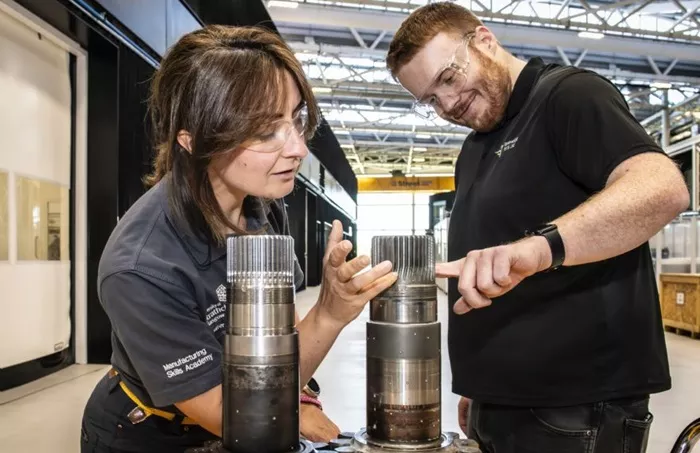A new research partnership between Renewable Parts Ltd (RPL), SSE Renewables, and the National Manufacturing Institute Scotland (NMIS) has shown promising results in remanufacturing vital components for onshore wind turbines. By restoring worn or damaged parts to their original condition—or even better—this approach can reduce waste, cut carbon emissions, and extend the lifespan of key turbine components.
The team used advanced additive manufacturing (3D printing), along with detailed analysis and inspection methods, to successfully repair damaged pinion shafts from wind turbine yaw gearboxes. These shafts play a crucial role in turning turbines to face the wind and maximize energy output. When pinion shafts fail, turbines often have to replace entire components, creating up to 42 kilograms of steel waste and causing downtime.
Initial tests showed that remanufactured pinion shafts matched original performance standards after machining and non-destructive testing. This process saves up to 84 kilograms of CO2 equivalent emissions per part. RPL is now working to validate these parts further and compare them against new shafts before starting operational field trials. Encouraged by these results, the team is exploring the potential to remanufacture other essential turbine parts using similar technology.
The long-term goal is to roll out remanufactured pinion shafts across UK onshore wind farms. This could save thousands of tonnes of steel waste and reduce emissions significantly. With the UK currently operating around 15.7 gigawatts of onshore wind capacity, the environmental benefits of adopting remanufactured parts at scale could be substantial.
Ryan McCuaig, product development engineer at Renewable Parts, said, “Remanufacturing could transform sustainability in the wind energy sector by increasing the amount of steel we recycle in refurbished products. We’ve had the idea for some time but lacked the specialist facilities and expertise. Partnering with NMIS and SSE Renewables has proved that these critical parts don’t need to be discarded—they can be given a new life.”
Supporting Circular Manufacturing
This project is part of ReMake Glasgow, an initiative promoting circular manufacturing in the region. It helps companies adopt remanufacturing and refurbishment technologies, especially in sectors like energy, aerospace, and transport. The initiative aims to reduce CO2 emissions by up to 99% compared to producing new parts. This is important at a time when fewer than 2% of UK products are designed for reuse.
Andreas Reimer, senior Glasgow ReMake theme lead at NMIS, emphasized, “Repair and remanufacturing must become standard practice to reduce environmental impact and create new economic opportunities—especially in critical industries like renewable energy. Our work with Renewable Parts shows how innovation and industry needs can come together to develop circular solutions that also support local supply chains.
“If widely adopted, remanufacturing could prevent huge amounts of steel waste and cut emissions linked to importing parts from overseas. Producing parts locally would also create jobs and keep specialist skills within the UK.”
The project received partial funding from the Glasgow City Region Innovation Accelerator programme, led by Innovate UK on behalf of UK Research and Innovation. With a one-year extension underway, ReMake Glasgow will continue helping manufacturers adopt circular practices and grow sustainably.
Last year, NMIS launched the £5.5 million ReMake Value Retention Centre (RVRC) in partnership with the universities of Strathclyde, Exeter, and Sheffield. The centre takes a multi-disciplinary approach to circular innovation—from advanced repair methods to new business models—helping manufacturers extend product life and cut emissions on a large scale.

